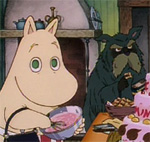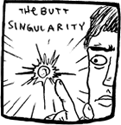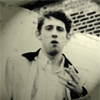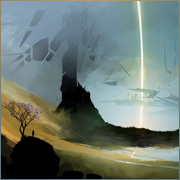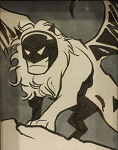|
If you like sci-fi and haven't read any of The Culture books you're missing out on some great reading. The last thread was locked so I'm jumping in and starting a new one. Previous thread is here : https://forums.somethingawful.com/showthread.php?threadid=3072427 I've been getting as many friends and family reading these books as I can. Since covid I've sent people some of my old copies with short stories within the books bookmarked to give them an idea of what they would be getting in to, just recently got my 73 year old mom reading them by sending her The Hydrogen Sonata with "The simming problem"(not even its own chapter, just a few pages of text halfway in to the novel) bookmarked. Use of Weapons has some great shorts that are part of the larger story as well, same with Surface Detail. I've always been fond of the short in Consider Phlebas with the crash landed Idiran recounting it's struggles.
|
|
|
|

|
| # ? May 6, 2024 23:55 |
|
I like The Algebraist OP, because it doesnít take itself seriously. It wouldíve been a lot better had Banks omitted the prehensile penis rape scene.
|
|
|
|
I don't know if I'll ever recover from that one Goodreads review of Surface Detail I read which concludes that the Culture is an anarcho-capitalist society.
|
|
|
|
FPyat posted:I don't know if I'll ever recover from that one Goodreads review of Surface Detail I read which concludes that the Culture is an anarcho-capitalist society. Elon Musk is a "fan" of Iain M. Banks and thinks he was anti-Union so that kind of stupid tracks. https://twitter.com/amendlocke/status/1008741008899702784 I love his books, both Iain and Iain M, it sucks that he died so young.
|
|
|
|
I am also planning my new build* with a lian li case, I plan on calling it: Anticipation of a New Lovers Arrival, The. *When prices return to sanity.
|
|
|
|
I still feel so sad that he is gone. Iíve been thinking about rereading Surface Detail, that book really devastated me the first time I read it. That and Look to Windward are probably my favorites.
|
|
|
|
It's interesting how among the Culture books there doesn't seem to be clear favorites or clear duds. Everyone has their own taste. For me: 1. Use of Weapons 2. Look to Windward, Player of Games, Inversions, Matter 3. Hydrogen Sonata, State of the Art 4. Surface Detail 5. Excession, Consider Phlebas The lowest tiers are still good books, just not ones that I feel particularly compelled to reread. A lot of people seem to like or even prefer Excession, but for me Genar-Hofoen is such a piece of poo poo that he's annoying to read about, and none of the other humans are very interesting either. The actual plot is great, of course. Interestingly even if Use of Weapons is my favorite book - just a stellar piece of fiction by any metric - it's not the one I would reread the most. It's very heavy and deals with extremely traumatic stuff. Same reason I place Surface Detail so low, it mixes bits of fun space adventure with some insanely hosed up imagery that doesn't really gel for me as a whole. Player of Games, Hydrogen Sonata, and Inversions are some of the more rereadable books ever for me in comparison. Not that there aren't some heavy elements in those too, but they're really fun to read and very consistent in their tone and themes.
|
|
|
|
The only person I've met who consistently recommended these books was an insufferable rear end in a top hat, so I've had an unreasonably negative attitude towards them for years. Can someone give me an elevator pitch on the series? I own the first book (given to me by the rear end in a top hat I mentioned earlier) and I've been looking for a good sci-fi novel (or series) for the summer.
|
|
|
|
Dr.D-O posted:The only person I've met who consistently recommended these books was an insufferable rear end in a top hat, so I've had an unreasonably negative attitude towards them for years. I donít want to attempt an elevator pitch, every book is different and many of them have twists so itís better to go in blind. I would recommend starting with The Player of Games as your first book though! Consider Phlebas is kind of bleak and gross. Still good, mind you, but itís probably my least favorite.
|
|
|
|
Iain M Banks writes sprawling space operas in which the glass is both half-full and half-empty at the same time. They usually (but not always) involve the Culture in some way, which is his take on a Federation-style future utopian civilisation. However, the peoples and lifestyles of the Culture (prominently including include artifical intelligences known as Minds, who in the stories are often seen as sentient spaceships) are much more diverse than the Federation, probably because he doesn't have to worry about the budget of putting it on screen. The Culture also has no Prime Directive and is quite prepared to intervene outwith itself to protect its own interests and export its own moral values, and most of the Culture stories involve looking at some aspect of how the Culture interacts with the rest of the known universe. The stories generally manage to do a really good job both of presenting both a vast sweep of weighty and epic events on an intergalactic scale, and also clear well-observed engaging portraits of a few of the important people within those events that make you care about what happens to them. I often find that authors either manage to do one thing or the other really well, but I can't think of anyone else who could do both at the same time like Banks could. The books are all very different and you'll probably like some of them and dislike others, but that also means most people can find at least one of them to really get their teeth into. Meanwhile, please don't discount Iain Banks, who is a curmudgeonly Scottish git who writes deeply cynical, darkly funny novels set (mostly) on contemporary Earth. They often focus on unreliable and questionably likeable narrators living fast, loose, and chaotic lives in frequently confused and out-of-order narratives; they also often contrast working-class Scottish characters and locations with the rest of the world, particularly as they come into conflict with establishment figures from the declining British empire or rising American empire. (Both of which are of course thoroughly rotten and undesirable influences.) Trin Tragula fucked around with this message at 18:35 on Jun 7, 2021 |
|
|
|
Dr.D-O posted:The only person I've met who consistently recommended these books was an insufferable rear end in a top hat, so I've had an unreasonably negative attitude towards them for years. The running theme of the series is what responsibility an enlightened post-scarcity society has to intervene in cases of genocide or serious abuses in other planets, how good intentions can go sideways, and how even when the (person/robot/godlike artificial intelligence) who thinks they're smartest one in the room actually is the smartest one in the room they still aren't smart enough to overcome their own hubris. IMO it's great character-driven sci-fi with a very human touch to it that at the same time is trying to wrestle with big questions in a serious way and Banks doesn't ever pretend to have the answers to the questions he raises.
|
|
|
|
Okay, this sounds rad as hell. Thanks, friends.
|
|
|
|
The Culture novels are some of my favorite sci-fi. It's a great setting that Banks uses to tell very different kinds of stories. There are some familiar sci-fi topics and plot points, but the treatments are largely excellent. Fun fact: I used to have a vanity license plate that read "GSV". JOHN SKELETON posted:It's interesting how among the Culture books there doesn't seem to be clear favorites or clear duds. Everyone has their own taste. For me: I'd merge Surface Detail with the 3rd group but otherwise generally agree with your rankings. As a fan of the setting, I think Excession, Surface Detail, and Hydrogen Sonata are especially fun because of the Mind characters and higher level tech/civ stuff that's going on. But these are definitely the last three anyone should read because Mind shenanigans, subliming, and involved civ politics make a lot more sense if you've gotten a good feel for the setting from the more pan-human-centric stories.
|
|
|
|
For his non-Culture SF I would recommend Against a Dark Background. It's different from the Culture books but it could very well fit in, and it's a heist story where they're trying to steal an artifact called a Lazy Gun that can sort of rewrite reality on behalf of a Church that hates God and sing his curses. Things get weird from that starting point.
|
|
|
|
Player of Games gets my vote for the tightest written Culture novel. Later books, while still great, meander around multiple characters and become sprawling multi-viewpoint examinations of the same events. PoG (lol) is laser focused on one rear end in a top hat and his robot handlers, taking part in a high-stakes game of Settlers of Catan.
|
|
|
|
Is there any confirmation that Banks read Star Maker by Olaf Stapledon? His descriptions of the Culture's multiverse being a giant cosmic doughnut with universes coming into existence and cycling around remind me of that book.
|
|
|
|
Gravitas Shortfall posted:Player of Games gets my vote for the tightest written Culture novel. Later books, while still great, meander around multiple characters and become sprawling multi-viewpoint examinations of the same events. PoG (lol) is laser focused on one rear end in a top hat and his robot handlers, taking part in a high-stakes game of Settlers of Catan. I agree, I think Player of Games is probably the best introduction to the Culture series - it does a tight job of introducing the overall setting and the key tensions that the Culture tends to deal with, in the context of a self-contained and (IMO) really interesting narrative. I think it has at least an echo of every major issue or theme throughout the series as a whole and doesn't dig into any of the specific kind of out-there ideas like ascending or virtual hells or even the Idrian war that people may or may not be interested in at first. If you like it you might or might not like individual other Culture books, but if you don't like it then you probably won't like any of the series.
|
|
|
|
FPyat posted:Is there any confirmation that Banks read Star Maker by Olaf Stapledon? His descriptions of the Culture's multiverse being a giant cosmic doughnut with universes coming into existence and cycling around remind me of that book. No idea on whether it's a direct callback to Star Maker, but his cosmology with toroidal topologies and nested branes are pretty much ripped from the theoretical physics headlines of the last 50 years. The creative addition of there being some kind of continuous cyclic multiversal big bang has a bit more of a Star Maker feel to it, though it seems like it's entirely impersonal in the Culture series. FWIW I really enjoy it as a nice potential implementation of Lewis's modal realism with the closeness relation being instantiated as the "distance" across the bulk separating the branes of individual universes, because modal realism is awesome.
|
|
|
|

|
|
|
|
Notahippie posted:if you don't like it then you probably won't like any of the series I feel like Player of Games is the one that has the most focus on an individual, but has the least focus on the grand intergalactic context to what he's doing, so if someone didn't like it I'd absolutely direct them towards Consider Phlebas or Excession or Matter and see how they got on with that.
|
|
|
|
Look To Windward is a good primer on the Culture itself - what it's like for the average citizen on a day-to-day basis, its smug interventionalist policies (and what happens when they go wrong), and also its extremely specific retributive violence when attacked.
|
|
|
|
The thing I most want Banks to have went into more detail on is immigration into the Culture. Do they have billions of immigrants a year? Trillions? What would naturalization processes look like? Do more authoritarian civilizations find themselves in a Berlin Wall situation?
|
|
|
|
FPyat posted:The thing I most want Banks to have went into more detail on is immigration into the Culture. Do they have billions of immigrants a year? Trillions? What would naturalization processes look like? Do more authoritarian civilizations find themselves in a Berlin Wall situation? So yeah it definitely seems like if you're in the Culture universe and a land-based roughly human-size being, it would be smart to just kick it down to a GSV to have an easy life. Hard to imagine how there wouldn't be massive amounts of immigrants in real life.
|
|
|
|
JOHN SKELETON posted:So yeah it definitely seems like if you're in the Culture universe and a land-based roughly human-size being, it would be smart to just kick it down to a GSV to have an easy life. Hard to imagine how there wouldn't be massive amounts of immigrants in real life. I feel like there's a theme of cultural parochialism among Involved societies - all the different societies (including the Culture) feel like they're the height of galactic civilization, and the societies that don't are mostly non-Involved so it's more of a challenge to get people to the GSVs. That said, there probably is massive amounts of immigration since one of the other themes is that the people at the top might love a culture but it can suck for everybody else. It probably wouldn't make much impact - the Culture is aggressively cosmopolitan and accepting, with the Minds around every immigrant would basically be given an individualized onboarding and integration plan, and there's no tension around jobs/resources/etc.
|
|
|
|
It is head-canon for me that the events in Lifeforce 1985 is how The Grey Matter got it's demeaning nickname. Also nobody else brought up T. S. Eliot's 1922 mega-poem The Waste Land. +++ IV. Death by Water Phlebas the Phoenician, a fortnight dead, Forgot the cry of gulls and the deep sea swell And the profit and loss. A current under sea Picked his bones in whispers. As he rose and fell He passed the stages of his age and youth Entering the whirlpool. Gentile or Jew O you who turn the wheel and look to windward, Consider Phlebas, who was once handsome and tall as you. +++ Wondering what sources Iain Banks grabbed the titles from for his other Culture novels.
|
|
|
|
This stuff should probably be added to the thread OP. SFLer Donn Seeley posted it originally back in 1990 & then reposted again in 1993 as a followup response to people asking for lists of what Iain Banks has written/complaining about Banks work not getting nominated for Hugo/Nebula awards ********************* The interview (from May 1989) is fun and informative and you ought to track it down if you have an interest in Banks. Just in case you haven't ordered a copy of JOURNAL WIRED from Mark Ziesing or your favorite SF bookstore, I've typed up a summary of Banks's novels based on his enumeration of his works in the interview. The titles in this list should be in order by date of writing (NOT publication). Quotes from Banks derive from the interview. THE HUNGARIAN LIFT JET. Written in 1970, unpublished. '[A] spy story, absolutely full of sex and violence, neither of which I'd had any experience with at the time [laughter].' TTR. Written in 1972, unpublished. 'Just gigantic. ... It had a cast of thousands and was very silly.' Quasi-SF in the mold of CATCH-22 and STAND ON ZANZIBAR. THE USE OF WEAPONS. Written in 1974 or 1975, unpublished in its original version; apparently rewritten in the summer of 1989 for publication. SF; the first novel of the Culture. Like the later novels THE PLAYER OF GAMES and CONSIDER PHLEBAS, it apparently concerns a misfit or outsider in the interstellar utopian anarchy of the Culture. AGAINST A DARK BACKGROUND. Written after WEAPONS; unpublished. SF but not connected to the Culture stories. THE PLAYER OF GAMES. Written three years after BACKGROUND, published in 1988 after a bit of rewriting. The second Culture novel. A story about the nature of competition and cooperation that takes place on a planet where society is built around an incredibly complex game. Fun, although the politics is a bit heavy-handed. THE STATE OF THE ART. Written in 1979, published in 1989 after some polishing. A novella about Earth and the Culture published as a book. A Culture starship discovers Earth and members of the crew have different reactions to our own culture circa 1977. How does a utopia like the Culture react to an ugly mess like Earth? Some interesting insights into the Culture but the story doesn't stand by itself. THE WASP FACTORY. Banks's sixth novel, first one published, in 1984. The first book 'that I did a second draft on.' As for content - to quote the author, 'Well, you can call THE WASP FACTORY a lot of things, but MEDIOCRE it AIN'T.' If you had to classify it, I suppose you could call it 'psychological horror'. FACTORY made a big stir in the UK when it came out - - some people found it pretty shocking. It's great fun even when it's being egregiously nasty... Highly recommended. CONSIDER PHLEBAS. Written after FACTORY; published in 1987, making it the first published Culture novel. A big and gaudy novel, written as a kind of send-up of or tribute to classic space opera. As space opera, it kicks rear end plus it's wonderfully funny. Says Mr Banks: 'CONSIDER PHLEBAS would make a f***ing BRILLIANT film...' It would, too. WALKING ON GLASS. Written after PHLEBAS; published in 1985. Very complex novel about the different ways people experience reality. Reminds me of Phil Dick and Christopher Priest. Hey, and it's funny too. I read this first and I still think it's great, but David Hartwell didn't like it and you might not either. De gustibus. O. Written after GLASS; unpublished. 'It wasn't very good...' THE BRIDGE. Written after O; published in 1986. Very strange fantasy about a man who finds himself in a world where civilization is built on an infinite bridge over an infinite sea. It contains some bits from the unpublished novel O. The editor had Banks cut some 40,000 words from the novel; Banks mentions the idea of publishing an unabridged BRIDGE someday. However, he says: 'I'm certainly very happy with the way it IS' - the book is still very effective. I liked it a lot. ESPEDAIR STREET. Written after BRIDGE; published in 1987. A novel about the career of a rock musician from Scotland who makes it big but falls from grace. I liked it but I wasn't overwhelmed; it's a nice character study with many details from the music business. CANAL DREAMS. Written after the rewrite of GAMES; published 1989. A short novel that combines a character study of a classical musician with nail-biting suspense. The musician is a woman cello player from Japan, so it's more exotic than it might sound. I rather liked it. Forthcoming: The rewritten WEAPONS for 1989; a new non-SF book for 1990 ('something more like THE BRIDGE, that complicated and intricate [but] a bit bigger, beefier, as it were, the size of PHLEBAS perhaps'); the rewrite of BACKGROUND for 1991. ********************* plus: These two Iain Banks interviews used to exist on Iain Banks personal website until Orbit Books took it over. A FEW NOTES ON THE CULTURE by Iain M Banks archived at http://www.vavatch.co.uk/books/banks/cultnote.htm The inspiration for the title and plot of CONSIDER PHLEBLAS archived at https://synergetics.io/phlebas/text/banksint02.html Finally: ------------------------------ Date: 19 Jun 1996 13:47:48 -0400 From: REDACTEDDETCADERREDACTED (REDACTED) Reply-to: sf-lovers-written Subject: Iain Banks -- Excession My, I haven't felt so smug since last year's Babylon 5 series' final episodes were shown here first. I've just come back from having my copy of "Excession" signed by the author, and I even managed time for a brief chat. Contents of chat follow, spoilers/comments for the book itself to follow when I've read it - a couple of days at most. I'm paraphrasing the conversation of course, but I'm pretty sure I'm not misinterpreting. Me: "Given that the typical Culture citizen (hah! now *that's* an oxymoron; Ed.) lives about 400 years, with death being regarded as something that gives meaning to life (see "A FEW NOTES ON THE CULTURE", sf-lovers archives), how does this apply to Minds? And drones of course." IMB: "I feel that they're beings with a much longer lifespan. I'd expect Minds to go away, or disappear up their own beatitude, or something, after about 20,000 years. Of course, the Culture's only been around for about 10,000 years..." Me: "Will we have to wait another 4 years for the next Culture book?" IMB: "I have a contract for 2 mainstream and 2 SF, but what the SF will be depends on how the ideas come. Both, one or neither could be Culture books. I do find the big ships, big laser cannons and so of the Culture very appealing though." Me: "Do we meet any old friends in _Excession_?" IMB: "No, but there's always a wee reference somewhere to things that have appeared in other books." Er, that's it. The photographer arrived, and I thought of another 500 questions on the way back :-(. Oh well, at least I get to read the book. REDACTED REDACTEDDETCADER REDACTEDDETCADERREDACTED ------------------------------
|
|
|
|
quantumfoam posted:THE STATE OF THE ART. Written in 1979, published in 1989 after some My favourite part in this State Of The Art is this aside: Diziet Sma posted:Also while I'd been away, the ship had sent a request on a postcard to the BBC's World Service, asking for 'Mr David Bowie's "Space Oddity" for the good ship Arbitrary and all who sail in her.' (This from a machine that could have swamped Earth's entire electro-magnetic spectrum with whatever the hell it wanted from somewhere beyond Betelgeuse.) It didn't get the request played. The ship thought this was hilarious. I would have gone with Starman myself.
|
|
|
|
Gravitas Shortfall posted:My favourite part in this State Of The Art is this aside: I've been rereading it this week, and it's just one of my favorite pieces of culture human (as in, non mind) interaction. The bit where Li is explaining why the Earth must be destroyed to save it, as they drop him in the pool, is absolutely fantastic.
|
|
|
|
The revival of this thread prompted me to go and do some re-reading. I started with Against a Dark Background, because I haven't been back to it in a long time, and I've been thinking of it as my favourite over everything else he wrote for a long time. I like to be able to talk about why I like things and hopefully help other people understand it as well, but I could never do that for this, and that's a little unsettling. I guess that's why I didn't go back to it, I was afraid I'd find the magic had turned to dust somewhere, and it'd just be another competent-but-unremarkable sci-fi book. It's still there. For some reason, this book just taps right into whatever it is makes me tick and will not let go. I still can't put my finger on exactly what's going on in there. I could point at some parts of the whole with a lot more ease than I would have done after my last re-read; but I have no idea how to explain why this is my favourite. It just is, and I have no idea how anything else is supposed to beat the strength of that gut feeling. Maybe reading the other stuff will help bring it into relief.
|
|
|
|
https://www.orbitbooks.net/2021/06/...=Orbit+Books+UKquote:We are pleased to share an exciting publication update with everyone who has been looking forward to the release of The Culture: Notes and Drawings by Iain M. Banks and Ken MacLeod. Damnit they're gonna wring some extra bucks from me and it's gonna work.
|
|
|
|
MikeJF posted:https://www.orbitbooks.net/2021/06/...=Orbit+Books+UK Same, but gently caress it, we're never getting another proper Culture book anyway, so why not.
|
|
|
|
Haven't gotten one of these since the big book of bad art from the wheel of time, please don't let me down!
|
|
|
|
Huh, that Orbit Books announcement explains why all the links of Iain Banks giving background details and explanations of his inspirations (aka that stuff I linked to in my earlier posts in this thread) vanished from the official Iain Banks website (hosted by Orbit Books) around the time The Culture: Notes and Drawings first got announced for release back in 2014-ish. I trust Ken MacLeod not shoe-horning in "well, actually Iain was really referring to Thomas Hobbes here", or "John Locke originally stated this <Culture novel extract> position in much more detail" exactly as much as the people of 2021 trust the 2021 UK Labour Party post-Corbyn ejection. So that is, not at all. The art-book of Iain Banks artwork sounds semi-interesting, however the commentary companion book assembled by Ken MacLeod is a hard pass unless I stumble across it at a library in
|
|
|
|
I re-read Consider Phlebas. Reading it immediately after Against a Dark Background, it comes over to me as nothing so much as the same sort of thing, except far less well done. Which is very odd indeed, because the original work that eventually became Against a Dark Background was written in 1975 and the ur-Phlebas was written in 1984. It has the same kind of Blake's 7 feel and tone, but, like, there's a reason Blake's 7 was Blake's 7 and not Avon's 7. Phlebas is Avon's 7. Nobody really likes each other, everyone's suspicious of each other. The only fully three-dimensional character is Horza, and the narrator makes it clear that while he's principled, he's very much on the baddies' side. Kraiklyn just about gets two and a half dimensions thanks to the dip into his mind while he plays Damage, but everyone else is interchangeable and expendable and expires without much rhyme or reason. It lacks a real unifying thread beyond "can this guy somehow win even though we know he's wrong about everything?" The set pieces are fine, but in a way I'd prefer it if the entire book was just about the dooming and destruction of Vavatch, which is by far the best bit. It's lacking a lot of the ironic/sardonic humour that often comes out best when the Culture's Minds and drones get to speak. Maybe Sarble the Eye should have been the main character, and Horza a sideshow. Against a Dark Background, by contrast, fills in a lot of what I find Phlebas to be lacking. The clear unifying thread is about Sharrow, and how like the Lazy Gun she is, and whether she can escape that fate; and then at the same time there's also a still very relevant message in that it all stems from the villains' male entitlement being denied. There's a clear reason for her crew to be together having adventures, both in flashback and present tense, and most of them are drawn well enough for it to have an impact when things start happening to them. The set pieces are as good as any, the court of the Useless Kings is amazing, and I'm in awe of how the Solipsists keep re-appearing and every time the context is completely different and every time it feels totally un-contrived and believable.
|
|
|
|
One thing about Against a Dark Background that I completely missed on the first read until someone pointed it out, and I'm wondering if it was just obvious to some folks (not plot spoilery, but a neat point to see) To solar system in the book exists far outside the galaxy. The title comes from the fact that the night sky has no stars in it at all, mainly just satellites. IIRC, when Sharrow is near death she reflects on how they're just all trapped in their solar system with no way out and hardly any dreams of anything larger. An odd point that really helped the book stick in my mind. Everyone in the book just has their head stuck up their own rear end in their own unique way. Except maybe the androids.
|
|
|
|
Okay so I read Excession a while ago as my intro, then Player of Games more recently and I very much enjoyed both. Just picked up Surface Detail yesterday and I'm already ripping through it. The main plot is "eh" but it's rich with side views and observations about the Galaxy and the various Players, so that's cool. Which should I try next if this has been my order so far?
|
|
|
|
|
Look to Windward, or Matter, IMO. Save Hydrogen Sonata for last. 
|
|
|
|
Matter was one of my favorites actually, seems most people don't agree, but I thought it was really interesting, left me wanting to know more in the end, sadly we never got it and never will.
|
|
|
|
My culture reading order reference: you can read in any order, but I've got a few notes. 1987: Consider Phlebas (Not a great one to start with) 1988: The Player of Games (A great one to start with) 1990: Use of Weapons 1991: The State of the Art 1996: Excession 1998: Inversions 2000: Look to Windward (In some senses a thematic followup to Consider Phlebas) <--- he took a long break here, and personally I think you get the best experience if you read the ones above this line before the ones below, there's a stylistic shift ---> 2008: Matter (contains very very minor Excession spoilers as well as a State of the Art character) 2010: Surface Detail (contains minor Use of Weapons spoilers) 2012: The Hydrogen Sonata (just read this last) Anyway, if you've done PoG and Excession, I'd go with Weapons. Or Phlebas and then LtW. State of the Art when you feel like it, it's a collection of short stories and a novella. MikeJF fucked around with this message at 07:38 on Jun 21, 2021 |
|
|
|

|
| # ? May 6, 2024 23:55 |
|
His Divine Shadow posted:Matter was one of my favorites actually, seems most people don't agree, but I thought it was really interesting, left me wanting to know more in the end, sadly we never got it and never will. I really liked Matter until the ending, where Banks seemed to realise it was 10pm the night before the deadline and he didn't have one.
|
|
|










